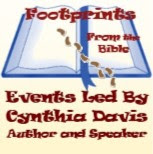 Not everyone who heard the news of the birth of Messiah were overjoyed. In the liturgical calendar of the church, I am always brought up short by the remembrance of St. Stephen on the day after Christmas and then on Dec. 28, the Feast of Holy Innocents commemorating Herod's response to the birth of Jesus. He could have said 'yes' to God like Mary and Joseph and Zechariah did, but he did not.
Not everyone who heard the news of the birth of Messiah were overjoyed. In the liturgical calendar of the church, I am always brought up short by the remembrance of St. Stephen on the day after Christmas and then on Dec. 28, the Feast of Holy Innocents commemorating Herod's response to the birth of Jesus. He could have said 'yes' to God like Mary and Joseph and Zechariah did, but he did not. Those in power felt threatened by the birth of the Christ, and none more so than Herod the Great. He was the ruler of Judea, by caveat of the Emperor, and feared anything or anyone who ruffled that status quo. Even his own family was not exempt from his deadly rages. Imagine how this mad man felt when he heard the wise men announce a ‘King is born’. (Matthew 2:1-8) He sent spies to follow them and “When Herod saw that he had been tricked by the wise men, he was infuriated, and he sent and killed all the children in and around Bethlehem who were two years old or under, according to the time that he had learned from the wise men. Then was fulfilled what had been spoken through the prophet Jeremiah: ‘A voice was heard in Ramah, wailing and loud lamentation, Rachel weeping for her children; she refused to be consoled, because they are no more.’” (Matthew 2:16-18)
This was probably small comfort to the parents in Bethlehem, mourning the loss of their toddlers, but it can remind us that God does not ignore any grief. Michael Card’s song Fellow Prisoners reminds us
“…chains can’t bind the hopefulness.
And the bars can’t block the means of grace.
And the distance that might separate,
Cannot defeat the prayers…
So fellow prisoners, remember,
That we may know captivity.
But there’s a purpose in the Calling,
For it is the Lord who sets the prisoners free.”
As with all the songs on his album Soul Anchor, Card uses citations from Hebrews. This one is based on Hebrews 10:34 and 13:3 which call us to “Remember those who are in prison, as though you were in prison with them; those who are being tortured, as though you yourselves were being tortured.” (Hebrews 13:3) because we possess “something better and more lasting.” (Hebrews 10:34)
The week after Christmas can feel like a let-down, after all the build up and excitement leading up to the holiday. I suggest you find a ministry to pray for or support in some way for the coming year. It may have to do with prisoners, like the Wings Ministry or Kairos. It may be adopting a service man or family or supporting a local food pantry. It could be something personally near your heart. We tend to remember the less fortunate around Christmas, but then they are safely tucked away for a year. The needs don’t end. We can fight evil, like Herod’s, by living out God’s love. As Card says, “bars can’t block the means of grace and the distance that might separate, cannot defeat the prayers.” Jeremiah tells us "there is a reward for your work, says the LORD." Nothing done in response to the love of God is unfruitful.









